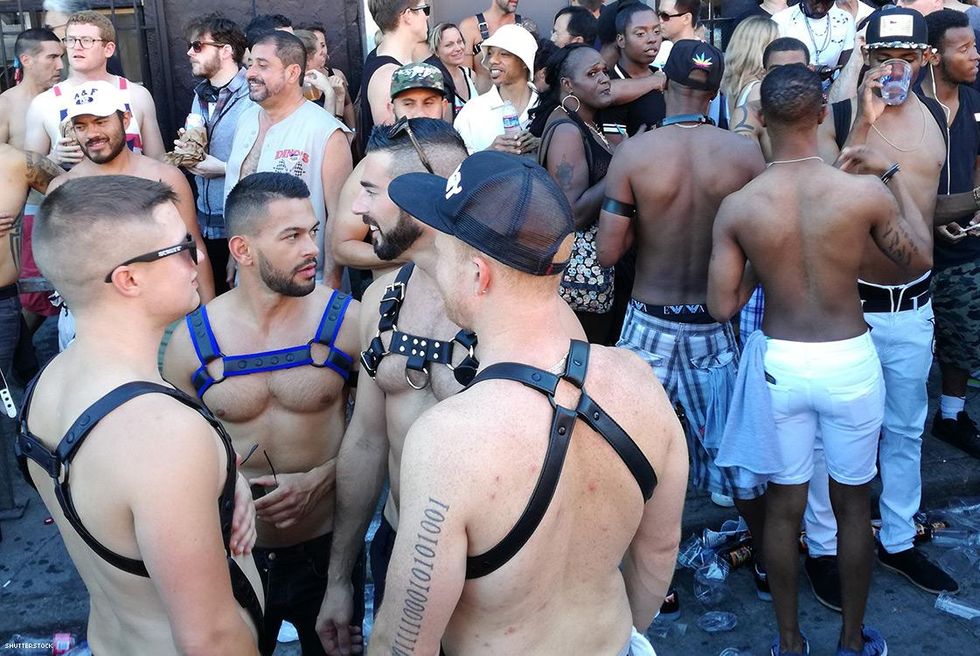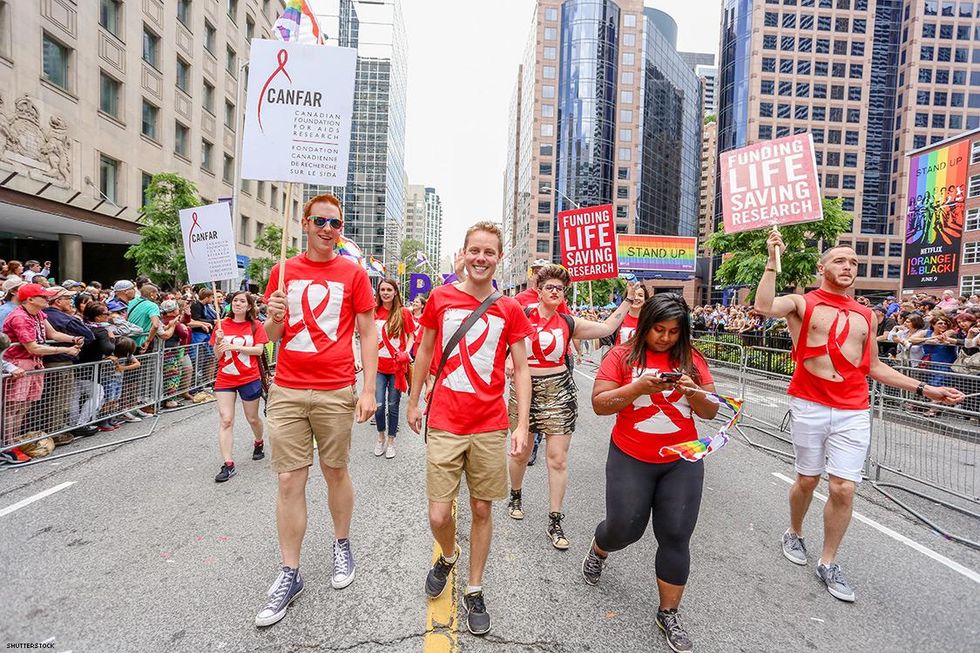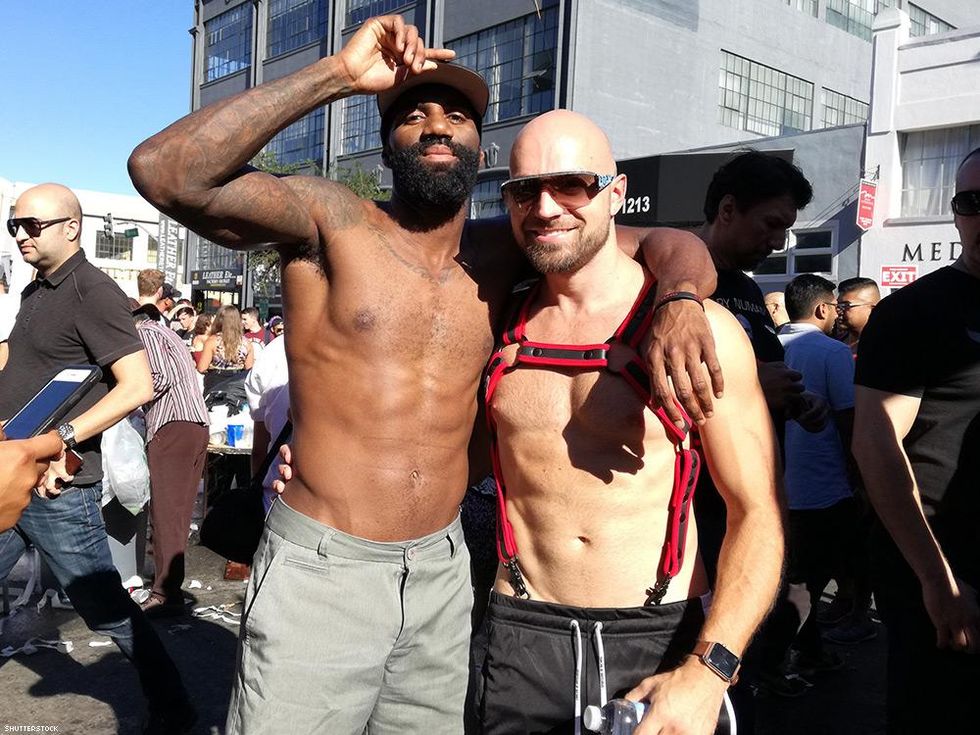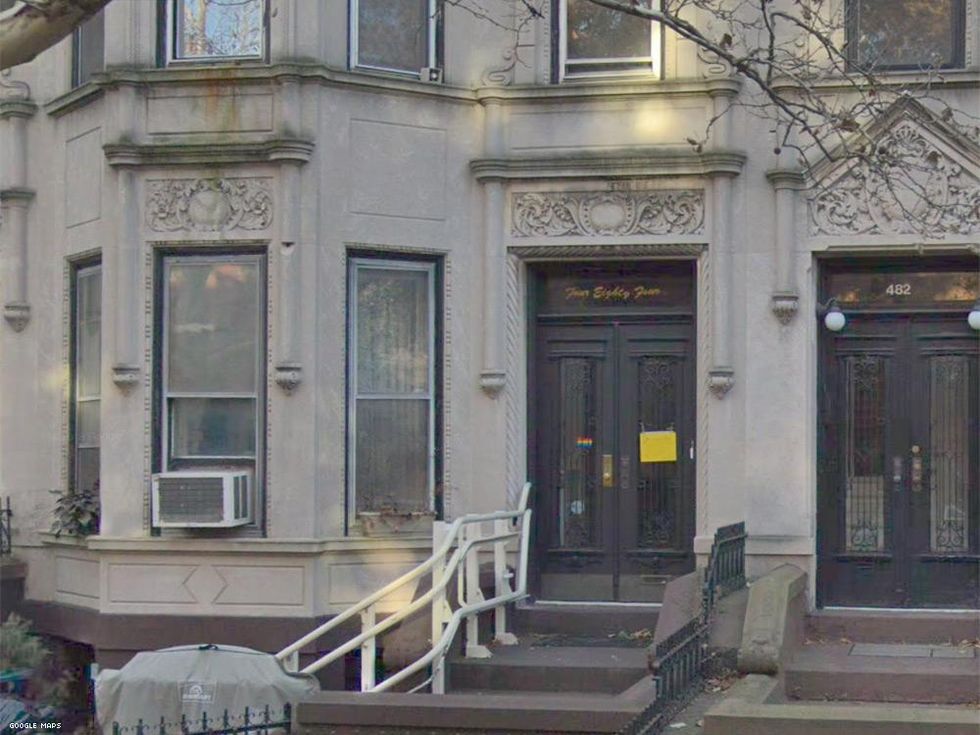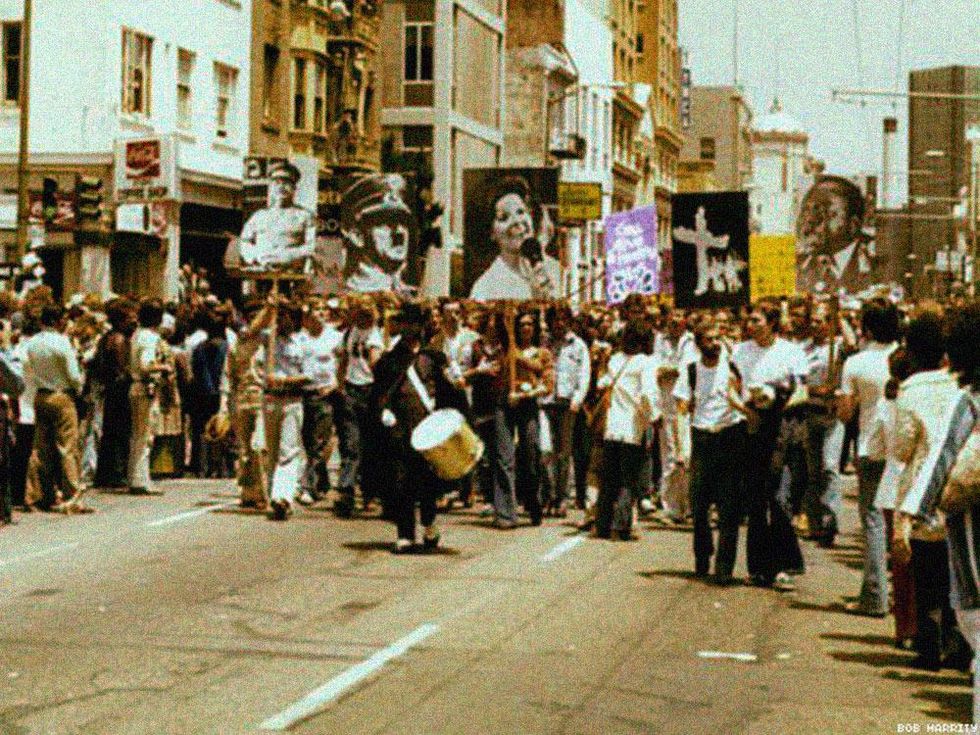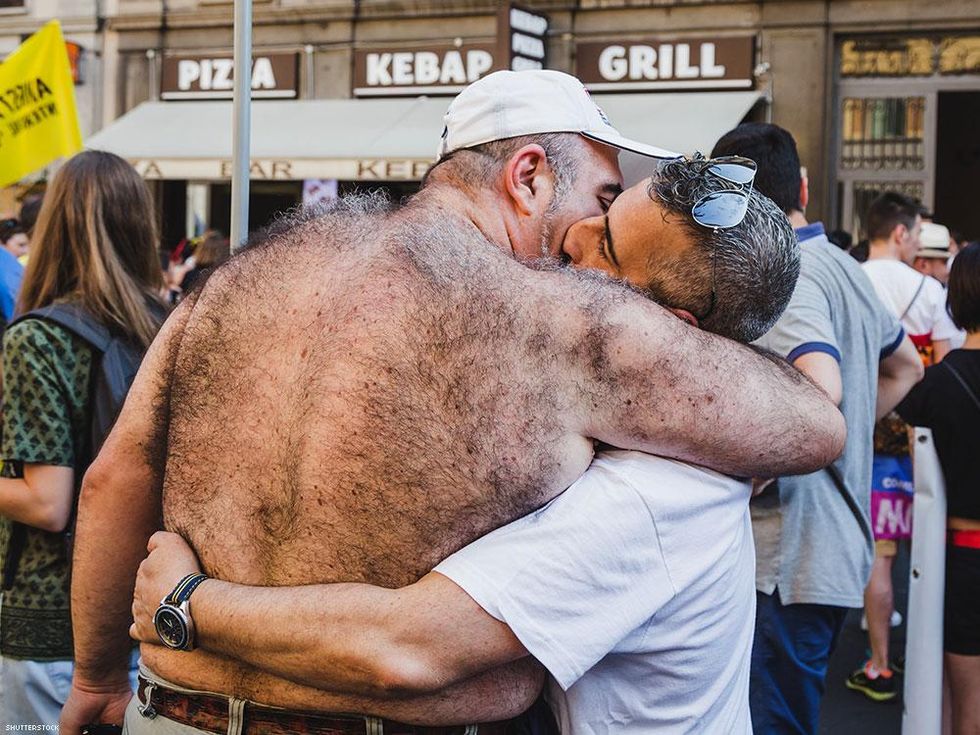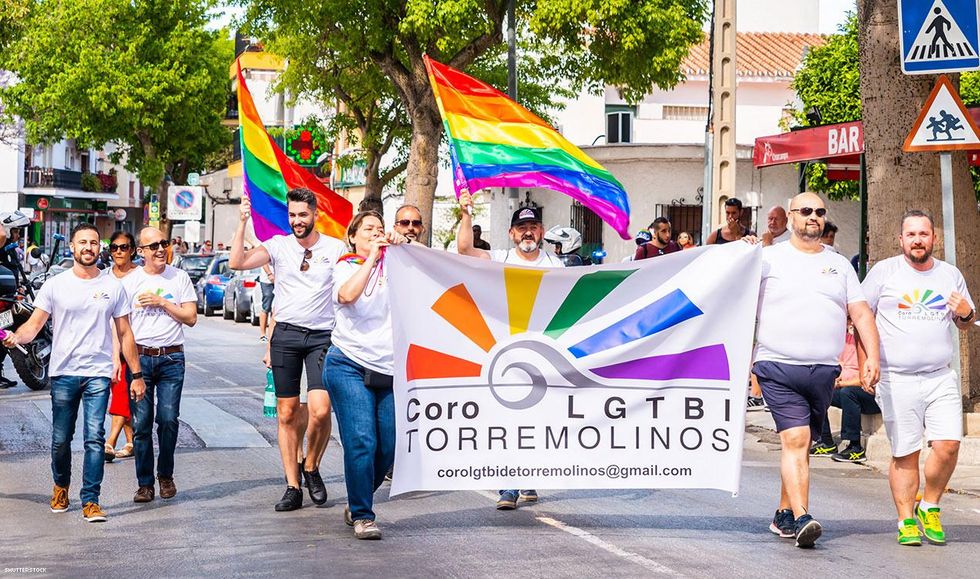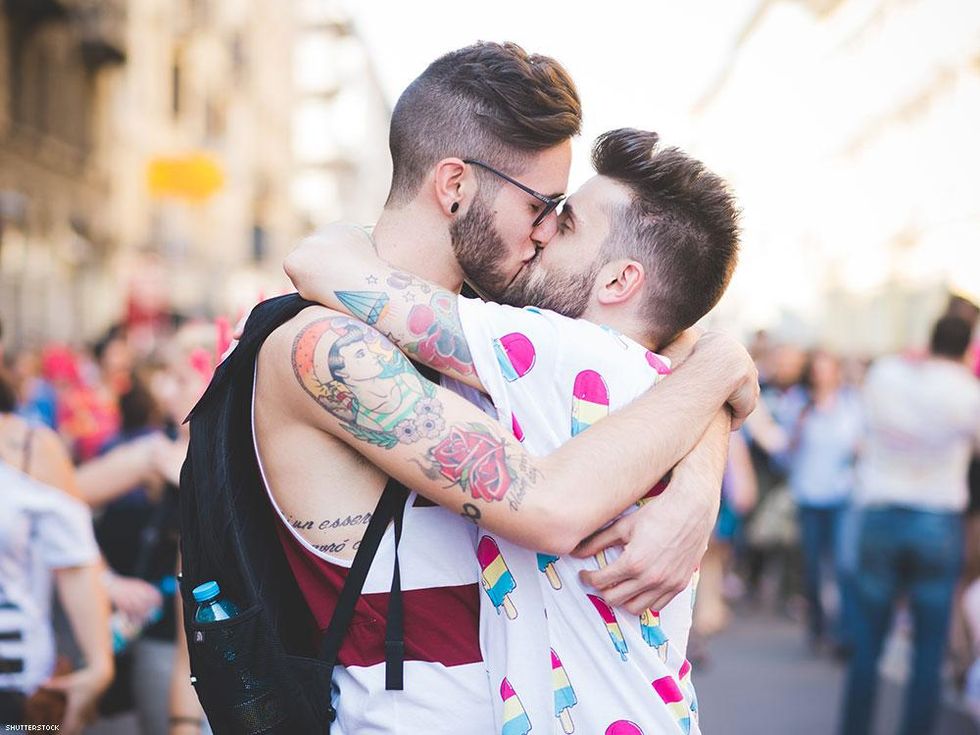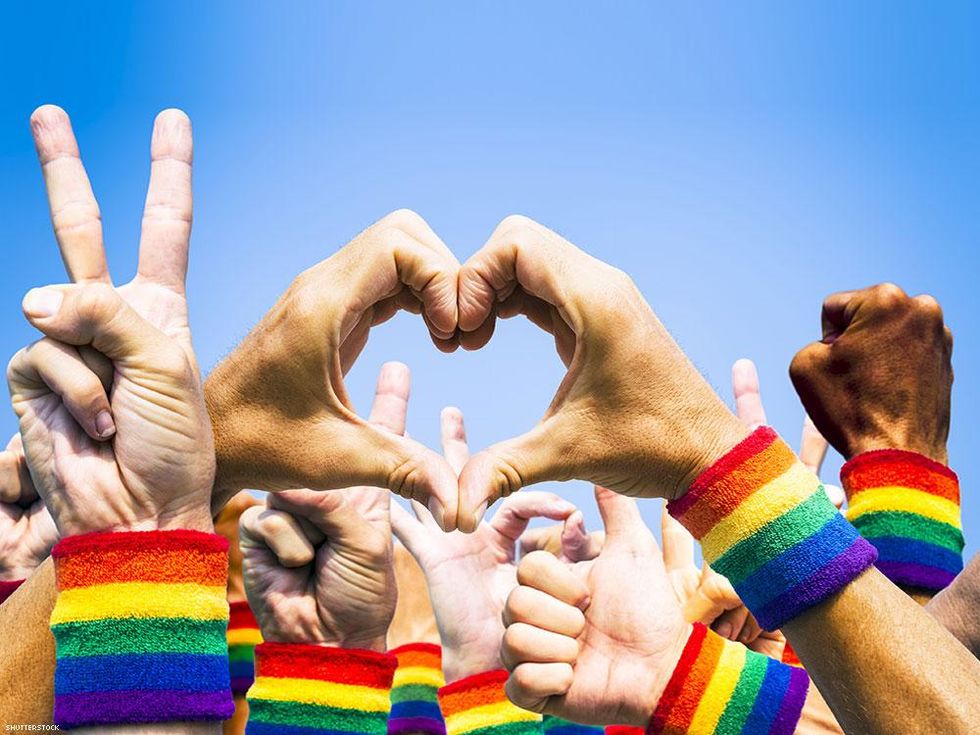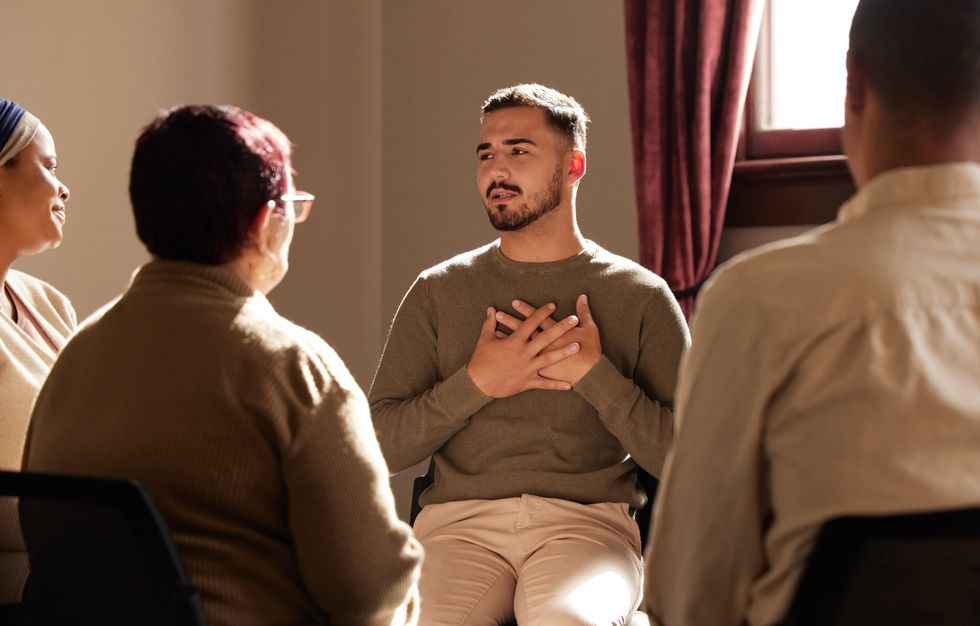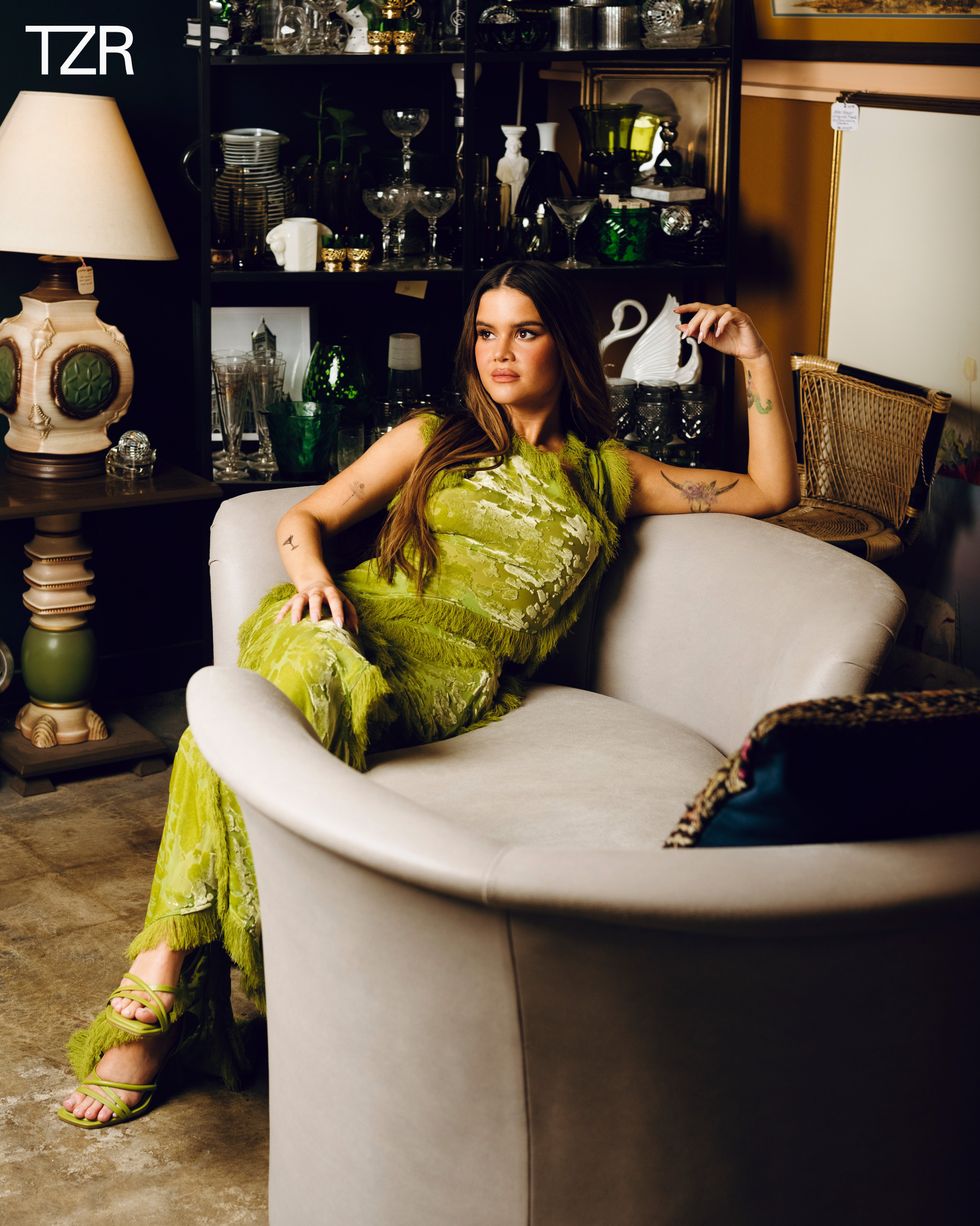Is "queer" an umbrella term or a slur?

Shutterstock
In modern days, as people get more in touch with their sexual identities and learn how to be more comfortable in their own skin, the term "queer" is getting a bit of a resurgence after previously being used as a slur against the LGBTQ+ community.
Now utilized as more of a term of endearment and an umbrella term for those within the community, the word also has a history of its own and wasn't always used as a term for LGBTQ+ people at all.
Here's a look at what it means to be queer, and how the word has changed throughout the years.
What does "queer" mean?

Shutterstock
Off the bat, let's get the GLAAD definition of "queer" out of the way just so we're all on the same current page: "An adjective used by some people, particularly younger people, whose sexual orientation is not exclusively heterosexual." The definition goes on to discuss how it used to be a "pejorative term" and how the younger generation gravitates toward it because terms like "lesbian, gay, and bisexual" are considered "too limiting and/or fraught with cultural connotations they feel do not apply to them." Granted, they also note that not everybody within the community accepts the terms, which is important to know whenever you're talking to someone in the community.
What is the origin of "queer"?

Shutterstock
According to Timothy Jones, an associate history professor at La Trobe University, the word queer has an uncertain origin, but it is believed to have entered into the English language in the early 16th century and used to primarily mean "strange, odd, peculiar or eccentric." It wasn't until the end of the 19th century that the word started describing men who had a sexual attraction to other men and used as something more derogatory. The first recorded use of the term as a slur happened in 1894 when John Douglas, the 9th Marquis of Queensberry, called his son, Lord Alfred Douglas, and his alleged queer lover, Oscar Wilde, "Snob Queers" during Wilde's infamous trial.
When did the word become reclaimed?

Shutterstock
Do the 1969 Stonewall Riots ring any bells? If they don't, it was a major event in the LGBTQ+ rights movement, though it wasn't until closer to the 1980s and 1990s when activists started to reclaim "queer", particularly due to the AIDS/HIV crisis. By the 90s, for the most part, people had started being referred to as simply "gay" or "lesbian" which eventually led to the creation of LGBT after bisexual and transgender people also sought more recognition. That in mind, the term "queer" started changing to mean a critical and political way of thinking that challenged the heteronormative ideas about what sexuality and gender actually are.
When did "queer" start becoming an umbrella term?

Shutterstock
Ever heard of Queer As Folk, either the original British airing in 1999 or the 2000 American version? (Hopefully you've heard of either of those before you've heard of/watched the 2022 reboot, but that's neither here nor there.) When those shows came out and became widely viewed, it helped bring the word back into a cultural conversation as a term of endearment and power, and eventually landed with the "Q" being added in to the LGBT acronym that was already growing traction.
How do people feel about the word now?

Shutterstock
This can be a bit of a touchy subject, and it largely depends on who you talk to. The older they are, the more battles they've been through in regard to allowing the freedom we have to live as members of the LGBTQIA+ community. However, those who survived the rights movements still view the word "queer" as a slur, since it often was when they were growing up. On the flip side, the younger and more progressive members of the community like it as an umbrella term, especially as the letters continue expanding in the acronym and some of the terms can be a bit harder to keep up with.
Some other things to note

Shutterstock
As queer becomes more acceptable to use as an umbrella term for the spectrum of sexual and gender identities, it's also important to remember that language changes all of the time, and "queer" is not the only word to be reclaimed by LGBTQIA+ people. In fact, most, if not all, words that have ever been used to describe those within the community originate and derive from homophobic or transphobic origins. If you identify as "gay," how often did somebody use that as an insult against you? Did anyone ever compare to the "joy" the word is supposed to mean in the first place? Didn't think so.
Should we cancel the word?

Shutterstock
We're definitely living in a society full of cancel culture where people try to erase what's happening by thinking they can just cancel it out. While it is most certainly important to remain respectful of people who take offense to the word, that does not mean it needs to be expunged entirely. Over the last 50 years, same-sex attracted and gender diverse individuals have worked toward the reclaiming of the word, and as we enter into a time with more homophobic and transphobic attacks, it's important we decide on a term that includes all of us in the fight for equality to promote more solidarity. As with so many other things within our community, educating yourself on the past and being mindful of our history remains an important factor.
I think I'm queer... now what?

Shutterstock
First of all, welcome to the team! Way to live your life authentically. We know it can be hard sometimes, but the most important thing to remember off the bat is that you are far from alone. There are also plenty of LGBTQ+ organizations that will both support and uplift you, so always feel free to reach out whenever you find the need. Groups like Queer Nation, founded in 1990 by AIDS activists from the ACT UP/NY AIDS Coalition are also out there fighting tirelessly to end discrimination we face in this community. A popular chant during demonstrations is, "We're here! We're queer! Get used to it!" After opening their initial chapter in New York City, the group ended up going nationwide with places such as Atlanta, Denver, Portland, San Francisco, and Houston.














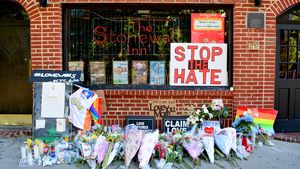








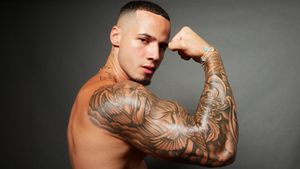
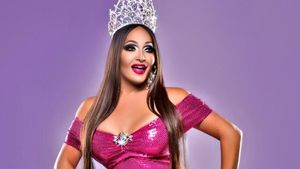
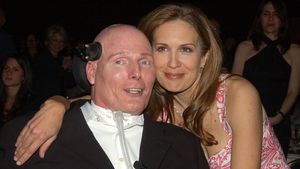



























 A couple kisses in the middle of the street during the Christopher Street Day ; Men seen kissing during the 2023 Pride Barcelona Parade.Yerchak Yauhen/SOPA Images/LightRocket via Getty Images; imone Boccaccio/SOPA Images/LightRocket via Getty Images
A couple kisses in the middle of the street during the Christopher Street Day ; Men seen kissing during the 2023 Pride Barcelona Parade.Yerchak Yauhen/SOPA Images/LightRocket via Getty Images; imone Boccaccio/SOPA Images/LightRocket via Getty Images
